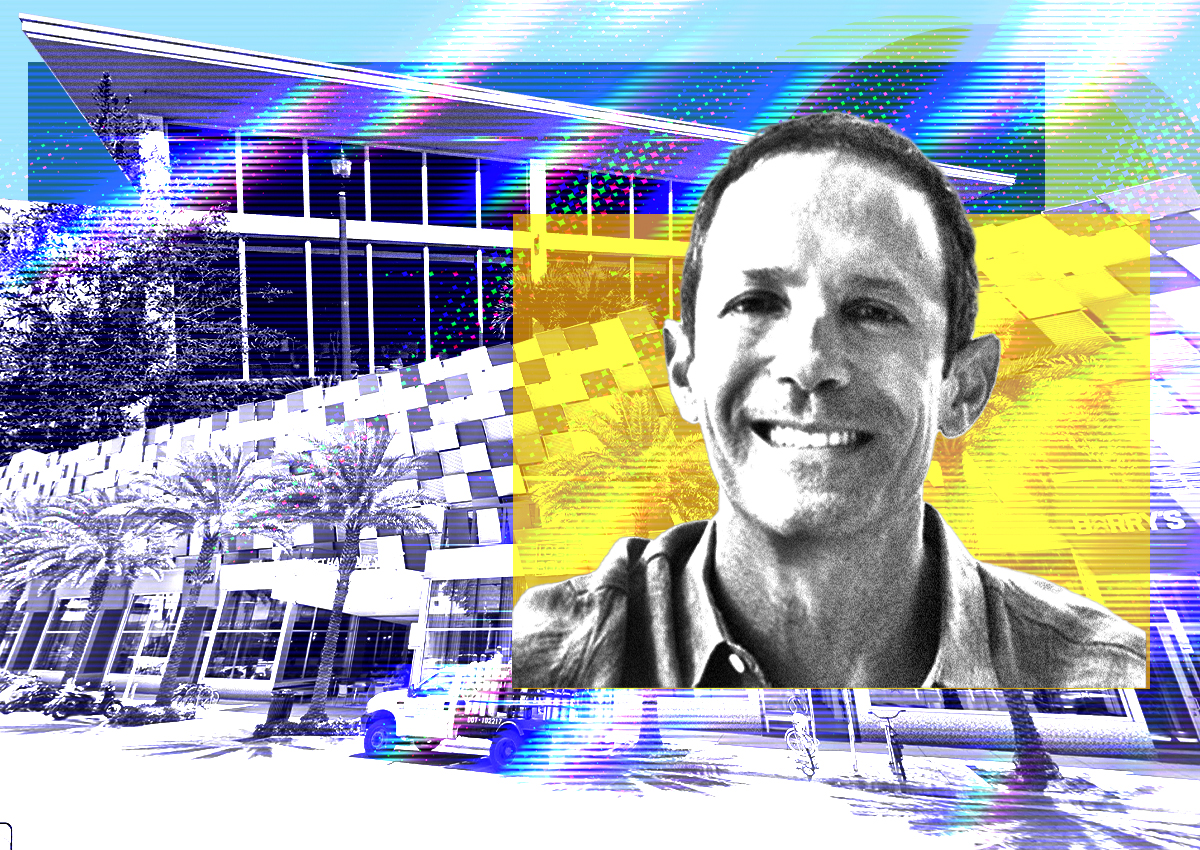
Butch Haze, a San Francisco Compass broker, said he remembers first coming up with the idea of what he calls a “superteam.”
It was 2018, and the inventory of his high-end clients was so tight that buyers would often have one agent look for them in San Francisco, another in Marin, and another in the Peninsula. real estate.
It didn’t help that brokerages bought up agencies across the Bay Area, and Haze suddenly found himself competing with five other Compass agencies for the same listing.
“All of our marketing is going to look the same,” he recalls thinking at the time.
His answer: a regional approach to real estate, with teams of agents focused on working with buyers and long-term relationships.
At a company as large as Compass, Haze sees this model as a way for agencies to differentiate themselves from other firms and keep pace with clients even as they change markets.
This is not the kind of “super team” where one or two star agents provide face and brand to lead a large number of subordinates into different markets. It is a communal arrangement that invites agents of a similar level in different but interrelated markets to be part of a collective.
Membership includes recurring meetings, initial buy-in and a percentage rebate on every sale made through a network connection with a referring agent, as well as an event and marketing budget for the team. Group contracts can also help agents reduce costs for photography, videography and staging.
The idea worked out well for Haze and his Network Group, which Haze now claims to be an evangelist for the concept, with representation covering the entire Bay Area from Carmel to Napa, San Francisco to Lake Tahoe. The team is ranked No. 13 in RealTrends’ 2022 national “superteams” rankings. Over $1 billion in salesthe fifth-ranked team in the state and the No. 1 team in the Bay Area last year.
Dissemination of information
Mara Ingram, a Brooklyn-based broker and co-founder of East Coast Network, said she noticed the network group’s branding and marketing after joining Compass five years ago.
The team is uniquely positioned in “lifecycle transactions” for buyers and sellers.
“Second homes, ski slopes and beach houses. Getting out of the city. Downsizing, upsizing, stuff like that,” she said.
She put the idea on the back burner, but didn’t move forward with the project until she got in touch with Connecticut-based Compass agent Laura Kottler in the fall of 2021. The network has moved from theory to reality and now has more than a dozen agents concentrated in the tri-state area, as well as in Boston, Atlanta, Newport and Florida, they said.
The group, aimed partly at referrals and partly at building “almost like a family” of like-minded agents, meets twice a month to discuss the latest trends, and sometimes one member of the team will interview another to learn more about the latest trends. Learn more about each other and their market.
“It’s as much a progressive real estate think tank as it is an agency about referrals,” she said.
Like Network Group, East Coast Network takes initial funding from the founding members, plus monthly dues and returns a percentage of sales through an ECN connection to the originating agent and pays for the team. There’s also an interview process that picks out proactive agents with complementary skills who “put their hands up, not out,” and force on topics like marketing, finance or management, Kotler said. Sexual group assignments.
“It’s not just ‘sign on the dotted line, I’ll do it when someone in Boston recommends you,'” she said.
yes or no
Choosing proactive collaborators is key to the success of a “superteam,” Hartz says, but personality matching is just as important. As part of the interview process for joining the networking group, each member is asked if they would like to spend a weekend in the backcountry with a potential new team member, and if so, would they feel sad at the end of the weekend about parting ways. The decision must be passed unanimously.
“Everybody’s going to go all out, which is too bad,” he said. “Or not at all.”
When Alicia Sanguinetti and Andrew Greenman applied to be Peninsula representatives for the network group, Greenman said that through a series of one-on-one interviews and “financial presentations,” “We do market ourselves to the group”. stock. ”
The newest member, Peter Colbert, a broker representing wine country, said the high barrier to entry was part of its appeal. Realtors are often members of various associations and groups, but this one “has a lot more to it,” he said.
Once you pass the introductory challenges, the rewards will be substantial. Jamie and Nicole Blair switched to Compass a few years ago from a family-run operation in Lake Tahoe, in part because of the potential for more referrals from the Bay Area.
They say their business doubled when they made that leap, and doubled again when they joined Network Group, going from just a few referrals a year to 70% of their business From a Bay Area agent. Their sales also jumped from about $50 million a year to more than $230 million last year.
Many of these referrals aren’t even from other web proxies. While many other Compass agents seek referrals through the company’s internal messaging system, Network agents are always quick to recommend their partners, according to the group.
“If another agent was looking for a Lake Tahoe agent as a reference, and they heard it from all of us, they’d just refer to Team Blair,” said Danville Network agent Julie Whitmer. “And it works both ways.”
Compass just apply
Whitmer succeeds founding member Khrista Jarvis when Jarvis leaves Compass for Coldwell Banker in early 2022; Colbert succeeds her when Hillary Ryan leaves for Sotheby’s. Succession chains introduce one of the main disadvantages of “superteams”: agents share proprietary information and tools with each other, and they must remain within the same agency.
Convincing some top agents to join can be difficult, Haze said, because they fear they may have fewer referral options. Putting together such a team is also a considerable administrative task: the network group has to obtain its own license number and its own tax number from the Ministry of Real Estate.
While the process has been somewhat odd, Compass says several similar teams are being formed in Network’s footsteps. Haze said he’s not worried about the rise of a network of similar teams inspired by himself, whether in the Bay Area or outside of Compass.
“It’s not like, ‘Butch did this in San Francisco, and nobody else in San Francisco can do it,'” he said. “I’ve been sharing all of these things with everyone because I want to see how they evolve. I’m excited to see ‘superteams’ being recreated.”







